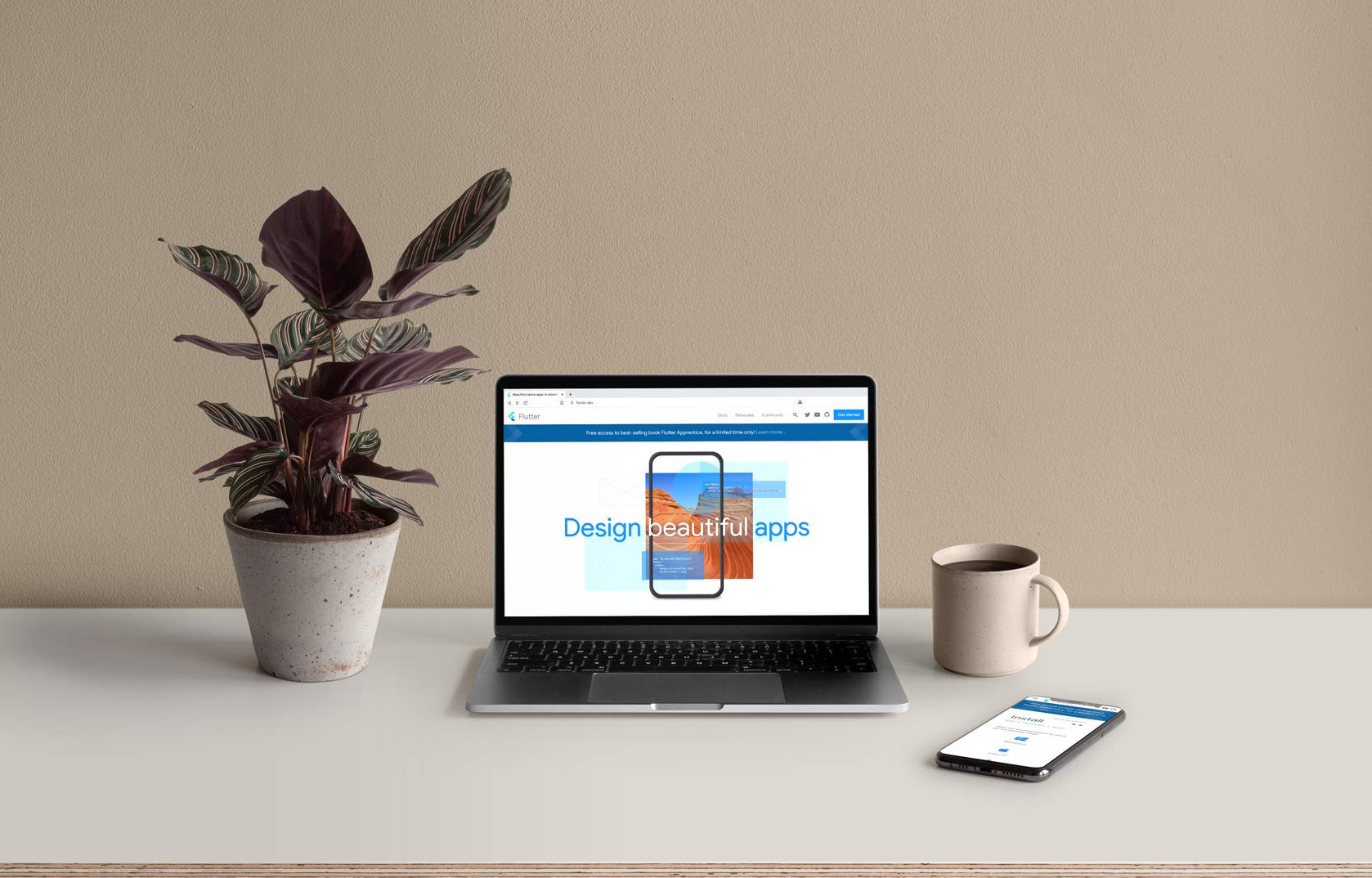
Native Vs. Cross-platform Development: Which Should You Use for Your App Development?
With 14 billion mobile devices used worldwide and with more than 4.4 million apps available on both the Appstore as well as Google Play, app development has become a profitable business!
If your business is currently looking at building an application, you’ll want to decide whether to build it using native or cross-platform development so you can design an app that efficient as well as cost-effective.
You'll also want to establish the very best solution for your app and as a tech agency, we love collaborating with businesses to build the very best solutions that meet their requirements.
But how do you choose which to use? Deciding one or the other has long term implications when it comes to cost, time as well as functionality. In this article, we’ll explore which is the best option that will suit your app and development needs.
What is Native App Development?:
Native development means building a mobile application exclusively for a single platform. Apps built with native programming languages and tools that are specific to a single platform.
Native applications are known for their great user experience due to their better performance and enhanced visuals that are tailored to the platform UX. However, what puts businesses off using native development is the high cost that apps built this way come with.
The code behind any kind of computer software is collectively known as a codebase and when you build natively, you're creating a single codebase for a single platform. Say iOS. Now, when you want to create an app for Android too, you can't use the original code because it was created with just iOS in mind so, you have to start a second one with now specifically built natively for Android.
The benefits will be the same – better performance, feature availability and enhanced visuals, however, it'll be more costly because you have to pay for not just one codebase, but two, three and so on depending on how many platforms you want to support.
That's the trade-off, greater development freedom and better performance for a longer, more expensive project.
Pros of Using Native App Development:
- Broad functionality: You’ll be able to access every API and tool provided by the platform that you’re working on so that developers will have more freedom when building.
- Better store support: A native app is easier to be published and usually ranks higher than cross-platform apps due to its better performance and speed.
- Increased scalability: Native allows apps to be more scalable due to their flexibility in resources and the number of tools available.
Cons of using Native App Development:
- Less cost-effective: Native apps can cost more to build than cross-platform apps as you’ll need to build and design for iOS as well as Android meaning you’ll have to deploy two teams to work on the platforms.
- More time-consuming: Since you’re essentially having to build for both devices, there will be more time and resources used.
What is Cross-platform App Development?
Cross-platform development is the more modern solution.
Instead, this time, instead of having to build several codebases for every platform you want to support, cross-platform development is the theory of creating just one codebase and compiling the result to every supported platform.
Cross-platform solutions such as Google's Flutter and Facebook's React Native are gaining more and more popularity due to their efficiency when it comes to time and cost. Unfortunately, the cost is that you risk sacrificing the quality of your app in the process.
The lower performance is due to being difficult to tailor an application that runs optimally on various platforms resulting in the software needing an abstraction layer.
Pros of Cross-platform App Development:
- Less cost: as cross-platform apps only need a single codebase, less of your team will need to work on it.
- Faster development: since your team will be working on one single codebase it’ll take less time to work on the build since the app will run on multiple systems.
Cons of Cross-platform App Development:
- The app may run slower: Cross-platform apps require an abstraction layer which causes the result to be slower.
- Limited functionality: Developers may have difficulty accessing smartphone functionalities like the microphone, camera, and geolocation in ways possible for a native app.
- Limited UX: Cross-platform apps are unable to take advantage of all native UX components. Therefore, it cannot sometimes deliver the same UX experience that is accustomed to the platform.

Things to Consider When Building a Mobile App
What you decided plays a huge factor in how the app will run and how users will interact with the resulting product. Consider what option would be best and how they will align with your overall business goals.
Development time: You may want to spend more time on your app before launching it to the world, but if you'd rather save time then you'll want to consider cross-platform development.
Application complexity: If you're building an app that's relatively simple in function, cross-platform development might again, be a good choice. However, if it involves heavy data processing or low-level API's like Bluetooth then native development might be worth considering a little.
Cost: Since native apps need more time to develop, they do require more money to build, so if you're looking at a cheaper alternative then cross-platform development may work best.
Consider Native Development If:
- You want to complex apps that need to perform at their very best.
- Your application requires access to all your devices resources and low-level API's
Consider Cross-Platform Development If:
- Your app is simpler.
- You are working on a smaller budget.
- You want to release the app in less time.
Conclusion:
Native and cross-platform are two very different app development methods each with its own pros and cons. To decide which one best suits your business depends on your projects requirements and the skills of the developers involved.
Whereas native is still the best overall choice when it comes to creating the best user experience and overall performance, cross-platform apps are the most cost-effective to build, but does mean that there could be a lack of quality in visuals and will require more effort to deliver an equal user experience.
If you're in the process of deciding what would work best for your app, our team can offer professional advice to find the best platform to suit your business needs.









